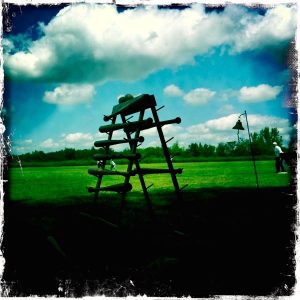Why We Like It: “And We’ll See You Tomorrow Night”
3 Minutes Read Time
Julialicia Case: I’m not much of a baseball person, or even a sports person, so when I came across Dave Mondy’s essay “And We’ll See You Tomorrow Night,” I did not expect to be swept away. After all, the piece focuses on the “Best Baseball Game,” a twelve-inning matchup between the Minnesota Twins and the Boston Red Sox in June 2006. It seemed like a topic for a very specific audience. Mondy, though, like any good storyteller, begins early on with an engaging hook: “[This is] the ultimate story for any fan—the story of how Andrew, Allan and I actually influenced who won the Best Baseball Game.”
Much more than a sports essay, “And We’ll See You Tomorrow Night” is told in a series of small sections numbered consecutively, such as “1 (bottom),” and “10 (top)”—each section coinciding with the inning being described. Mondy covers a variety of subjects, giving us facts about famous baseball players, reflections on his relationship with his friend Andrew, and quotations from David Mamet’s Three Uses of the Knife, a book on the craft of playwriting—and though these topics are diverse, the careful structure and varied approach give the sense that something greater is going on. At one point, for example, Mondy discusses “Elysian Fields: the name of a park in Hoboken, New Jersey, that was the site of the first baseball game in 1846” but goes on to remind us that “Elysian Fields was the afterlife home of Greek heroes. . . . These would be the less obvious connections between the Elysian Fields and baseball: Heroes and Theater.”
Though the piece is filled with interesting tidbits about baseball, Mondy constantly alludes to things that baseball and storytelling have in common, as well as the ways that sports and stories play a crucial part in the human experience: “What I mean is that, though it is terribly self-centered, it’s hard not to view oneself as the center of the world . . . But sometimes, getting wrapped up in something outside oneself, something like a great baseball game, can take us out of our myopic minds.” While it’s true this is an essay about one person’s experience at a baseball game, it is also an essay about the ephemerality of friendship, the desire to influence something greater than ourselves, the sense of loss that often accompanies memory. Mondy seems to suggest that anyone can be a baseball person. In fact, we are all baseball people, even if we don’t know it yet.

